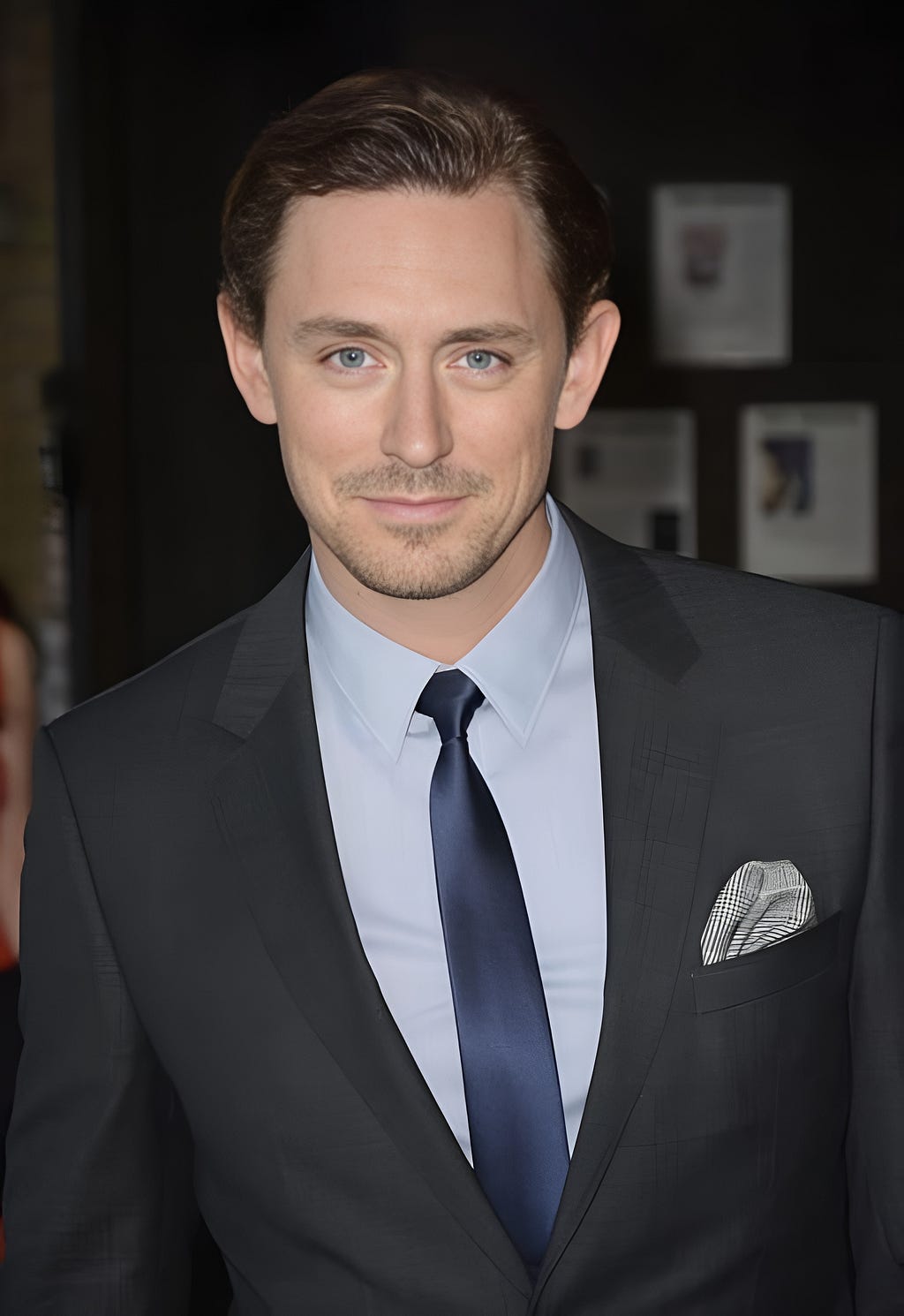
…There are many warnings about a need for us to return to our morals, and to share power rather than consolidate it. It’s up to us as individuals not to give away our attention so freely. Ultimately, our humanity must take precedence above everything else.
I had the pleasure to talk with JJ Feild. John Joseph Feild, born in Boulder, Colorado, is a British-American actor whose versatility and depth have made him a notable presence in film, television, and theatre. With a career spanning over two decades, Feild has navigated the complexities of various roles, from period dramas to superhero films, earning him recognition and acclaim in the entertainment industry.
Feild’s early life was marked by an international move when he was just six months old, relocating from the United States to London with his parents, British writer and former musician Reshad Feild, and his American wife. This transatlantic shift early in his life laid the groundwork for Feild’s eclectic career and artistic sensibilities. Despite his parents’ subsequent divorce and both remarrying, Feild’s upbringing in London exposed him to a rich tapestry of cultural and artistic influences.
Embarking on his acting journey in 1999, Feild quickly demonstrated his adaptability and skill, securing a variety of roles in television and film. His portrayal of Fred Garland in Philip Pullman’s “The Ruby in the Smoke” and “The Shadow in the North” television adaptations showcased his ability to bring complex characters to life, while his role as Henry Tilney in the television film “Northanger Abbey” highlighted his affinity for period pieces. Feild’s West End debut in 2008 in “Ring Round the Moon” marked a significant milestone, further solidifying his place in the realm of theatre.
Feild’s filmography is diverse, including roles in “Telstar” (2009), “Captain America: The First Avenger” (2011), where he played James Montgomery Falsworth, and “Austenland” (2013), demonstrating his range from historical dramas to romantic comedies. His portrayal of Major John André in “Turn: Washington’s Spies” from 2014 to 2016 was particularly noteworthy, offering a deep dive into the complexities of a historical figure during the American Revolution.
Feild’s educational background, including his graduation from the Webber Douglas Academy of Dramatic Art in 1999, provided him with a solid foundation in the performing arts, which he has leveraged throughout his career. His early experiences, from backpacking in Tibet to staging Shakespeare productions in a local pub, have contributed to his unique perspective and approach to acting.
Noteworthy is Feild’s ability to reflect on his career with humor and insight, from his comparisons to Jude Law to his admiration for actors like Jennifer Coolidge. His appreciation for London’s multicultural vibrancy and his passion for travel speak to an actor deeply influenced by the world around him, constantly seeking new experiences and challenges.
Feild’s favorite films, including “The Lion in Winter” (1968), “The Philadelphia Story” (1940), and “Last Orders” (2001), offer a glimpse into the cinematic tastes that have influenced his artistic vision and choices. His family background, with a father known for his spiritual teachings and a stepfather involved in the BBC, has imbued Feild with a rich, eclectic upbringing that has undoubtedly shaped his approach to his craft.
As he continues to evolve and take on new roles, John Joseph Feild remains a compelling figure in the entertainment industry, known for his depth, versatility, and commitment to his craft. His journey, from a young boy moving across the Atlantic to a celebrated actor on both stage and screen, is a testament to the power of resilience, talent, and the enduring appeal of storytelling.
Yitzi: JJ, can you share with us the story of how you got called for this particular project? How were you chosen? What was that process like?
JJ: You get a script and take a look at it, then someone wants to have a chat, and it’s all very last minute. I got a call saying that Joan and the team wanted to talk to me about it. At that point, I hadn’t read the book yet. I called a couple of friends who are into sci-fi, and they were over the moon about Gibson. So, I quickly grabbed the book and tried to read it in two days. It’s one of those books where you have to read the same page 10 times to understand it fully. It was a quick, amazing, deep dive into the sci-fi world.
Yitzi: JJ, can you share the most interesting story that has happened since you got involved in this project?
JJ: You know what I love? It’s that we play these two adversaries, and we never actually got to face off. Then, during some reshoots, they gave us a scene where we could face off. That was thrilling because we only knew each other in this other world.
Yitzi: Are there lessons you think our society today could learn from the themes of Peripheral? Is there a warning or a moral we can learn from that?
JJ: There are many warnings about a need for us to return to our morals, and to share power rather than consolidate it. It’s up to us as individuals not to give away our attention so freely. Ultimately, our humanity must take precedence above everything else.
Yitzi: Beautiful. Thank you so much. It’s been awesome meeting you. I wish you only continued success.
JJ Feild On The Lessons We Should Take From The Peripheral was originally published in Authority Magazine on Medium, where people are continuing the conversation by highlighting and responding to this story.
